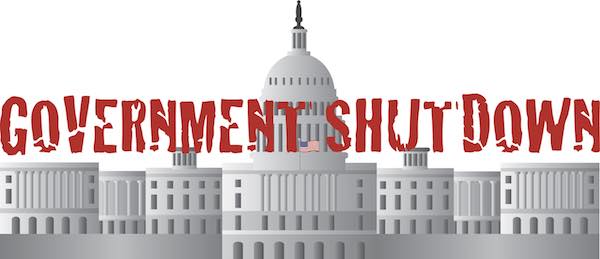Legislation has been reintroduced in the House of Representatives that aims to help protect federal employees and federal contractors from foreclosures, evictions and defaulting on student loans during a partial government shutdown.
Known as the Federal Employee Civil Relief Act (H.R. 1301), the bill was reintroduced by Congressman Derek Kilmer (D-WA). Companion legislation has also been reintroduced in the Senate (S. 640) by Senator Brian Schatz (D-HI).
The legislation as written purports to protect federal employees from:
- Being evicted or foreclosed
- Having their car or other property repossessed
- Falling behind in their student loan payments
- Having negative effects on their credit history
- Falling behind in paying their bills
- Losing their insurance because of missed premiums
The legislation would accomplish this by enabling federal employees to apply to a court to temporarily postpone payment obligations or eviction/foreclosure actions. These protections would last for the duration of a partial government shutdown and for 30 days afterwards. With respect to the legal protections, a press release about the bill states that it “would allow courts to weigh the equities of both parties to the contract in deciding how contractual obligations should be treated.”
The legislation was first conceived and introduced in 2019 amidst the last government shutdown which began just before Christmas in 2018 and ran until January 25, 2019. The last shutdown also was the longest in the country’s history.
The bill was also introduced in 2021 during the last session of Congress.
Are Federal Employees Paid During a Government Shutdown?
Federal employees may be furloughed during a shutdown, but thanks to a 2019 law, they are guaranteed to receive back pay for the time that they are furloughed.
The Government Employee Fair Treatment Act of 2019 (S. 24) requires federal employees who are furloughed or required to work during a lapse in appropriations resulting from a government shutdown to be compensated for the period of the lapse. Federal employees must be compensated on the earliest date possible after the shutdown ends.
This means that federal employees who are considered non-essential will still be furloughed during a shutdown and may potentially go without paychecks while their agencies are closed, so having an emergency fund would be wise from a financial planning standpoint to be prepared in case this happens, but the good news is that they will receive full back pay once the shutdown ends.
The law also states that excepted federal employees who are required to work during a partial government shutdown shall be entitled to use leave. They will be paid for said leave at the earliest date possible after the lapse in appropriations ends, regardless of scheduled pay dates.
Why Does the Government “Shut Down?”
The concept of a government “shutdown” is relatively new and did not exist before 1980. Hard as it is to believe now, prior to that time, it was not unusual for money to not be appropriated by Congress for the government to continue operating. When it happened, federal employees still went to work, got paid (usually a little late until funds were approved) and the situation was resolved without all of the political drama we have in modern politics.
Since the concept of a partial government shutdown was enacted, they have become used as political leverage when both parties spar over some issue and threaten to withhold funding for agencies, hoping the other side will cave.
For more details about the history of the modern government shutdown, see Why Does the Government Shutdown in the United States?.



